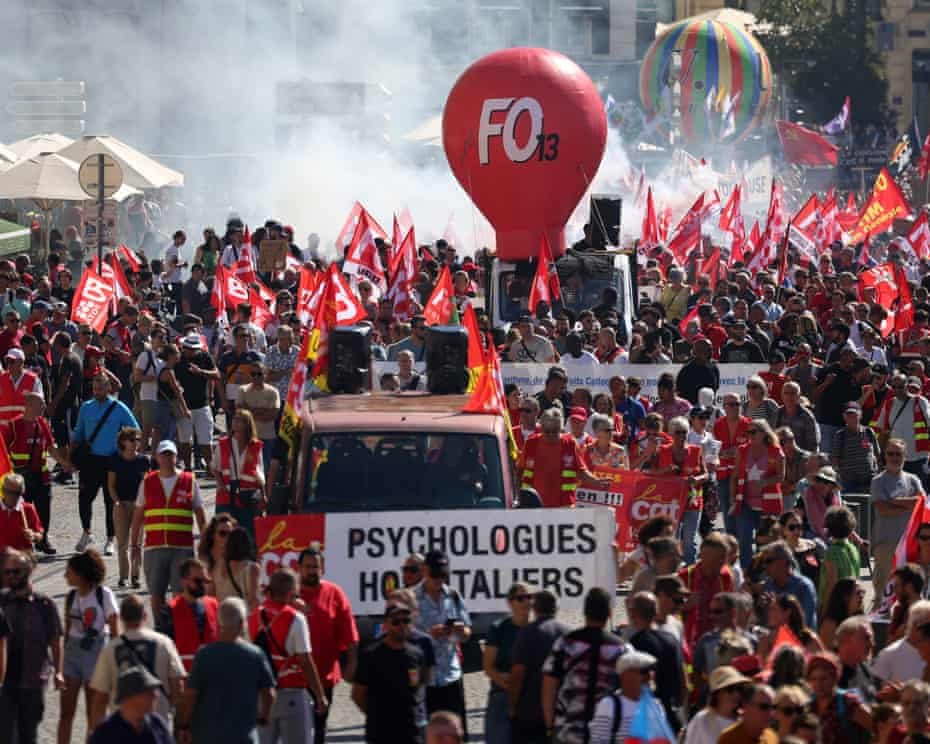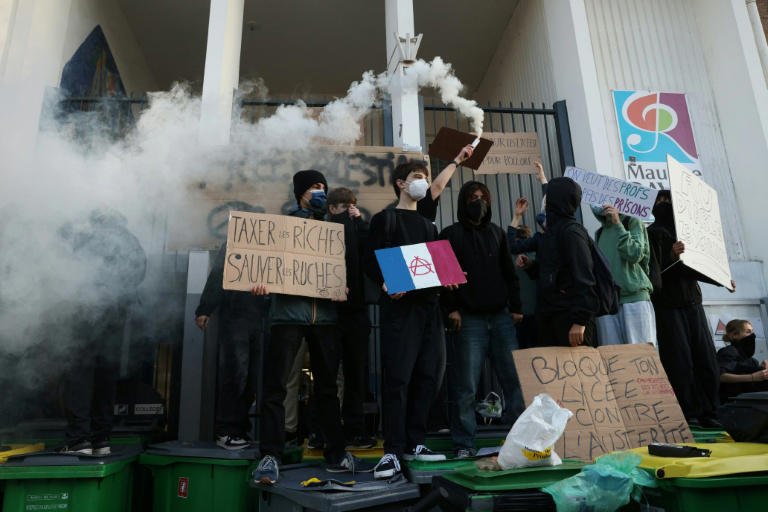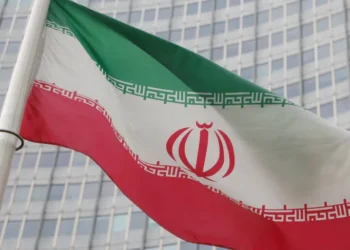Trade unions in France have made a rare show of unity as teachers, transport workers, hospital staff, pharmacists and public sector workers go on strike.
The strike is meant to put pressure on the new Prime Minister, Sébastien Lecornu, to rethink budget cuts and act on wages, pensions and public services.
About 800,000 people were expected to join today’s marches across the country, in what was expected to be one of the biggest strike days in years.
Schools, rail and air transport were affected. Up to 80,000 police were deployed across France from the early morning.

By 7am, several bus depots had been blockaded in Paris and northern France, as well as high school blockades in the east of the capital and Amiens in the Somme and Le Havre in Normandy. Rail transport was disrupted across France.
A total of 250 marches were planned nationwide as trade unions led demonstrations.
It is expected to be the biggest day of demonstrations since 2023, when large numbers took to the streets to protest against the use of executive powers to push through Emmanuel Macron’s raising of the French pension age to 64 without a vote in parliament.

The day of demonstrations comes at a time of political crisis in France after Macron last week named his close ally Lecornu as the third Prime Minister in a year – after the previous two, François Bayrou and Michel Barnier – were ousted by parliament amid bitter disagreements over the budget.
Lecornu, who begins his term in office with very low popularity ratings for a new prime minister, had served as defence minister in the previous two ousted governments and is struggling to convince opposition parties that he is bringing anything new, despite promising a “profound break” with past politics.
Lecornu was appointed after his centrist predecessor, Bayrou, lost a confidence vote on September 8, 2025, over his unpopular plan for a €44bn (£38bn) budget squeeze and austerity programme to reduce France’s public debt.
He has said he will ditch Bayrou’s unpopular proposal to scrap two public holidays but trade unions are concerned that other elements of Bayrou’s budget cuts, such as a freeze on most welfare spending, could be maintained.
Pressure Mounts On France’s New PM

Pressure is mounting on the new Prime Minister, Sébastien Lecornu as he has only weeks to come up with a budget text and form another minority government.
He has to avoid any budget being immediately rejected by opposition parties, which could call a vote of no confidence and oust him from office.
France is under pressure to lower a budget deficit of nearly double the EU’s 3% ceiling, and a debt pile equivalent to 114% of GDP.
On Wednesday, Lecornu met opposition parties as he consulted on the budget before appointing a new government. The 39-year-old’s background was on the traditional right before he joined Macron’s centrists, and he is likely to keep in place any new government’s cooperation with the traditional rightwing party, Les Républicains, as well as maintaining Macron’s legacy of pro-business economic policy.
However, if Lecornu is to avoid being ousted in a no-confidence vote, he is under pressure to find some way of appealing to the Socialist party, so observers believe they may at least agree a non-aggression pact not to immediately vote to oust him.
The Socialists met Lecornu on Wednesday and called for “an end to harsh budget cuts” saying they wanted “fair contributions from the wealthiest” and more policies to help French people make ends meet.
However, the leftwing delegation emerged saying Lecornu had not said much about his plans. “We’ll see what he says in the coming days,” the Socialist leader, Olivier Faure, told reporters. Faure said that if Lecornu was not willing to listen the Socialists could join a future no-confidence vote to oust him.
Marine Le Pen of the far-right National Rally party, a key opposition force, emerged from a separate meeting with Lecornu saying, “If he continues the same politics, he’ll fall.”
READ ALSO: Bank of Ghana Cuts Policy Rate to 21.5% as Inflation Outlook Improves


















